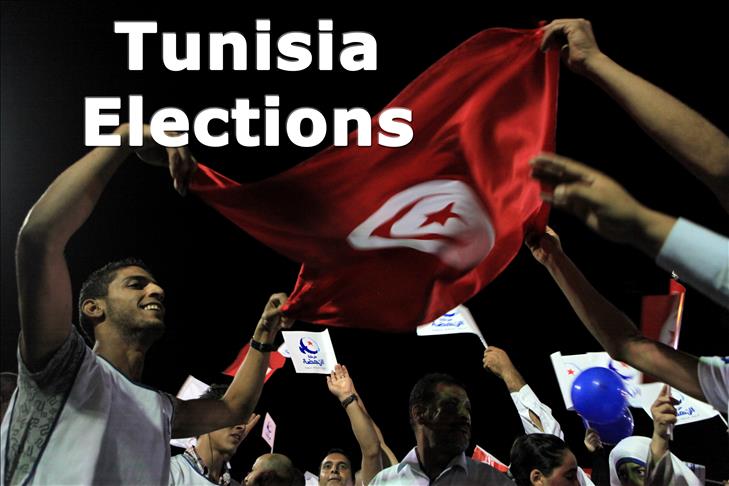Ghannouchi eyes 'unity government' after Tunisia polls
Ghannouchi predicted that his movement would win 41 percent of the assembly seats in Sunday's polls.

TUNIS
Rachid Ghannouchi,
"There is a seemingly national consensus in Tunisia regarding our calls for forming a national unity government," Ghannouchi said in an exclusive interview with Anadolu Agency published on Thursday.
He said Tunisia – which faces major economic and security challenges – needs a national unity government that enjoys grassroots support.
"No party can face these uphill challenges alone," he said.
Voters will cast ballots on October 26 for 217 members of the National Assembly, which will choose a new prime minister to replace Tunisia's current caretaker administration.
Presidential elections – the
Ghannouchi predicted that his movement would win 41 percent of the assembly seats in Sunday's polls.
"We expect Ennahda will win big, as in the past," he said.
In 2011 polls, the Islamist movement won 41 percent (89 seats) of the country's 217-seat Constituent Assembly.
"We expect to win a similar number of seats this time," said Ghannouchi, who has not ruled out the possibility of joining a government that also includes former members of the Ben Ali regime.
"We have avoided the policies of exclusion and political isolation," he said. "The former regime committed crimes against the people, but these crimes were individual in nature."
Reconciliation
Ghannouchi said his movement would not field a presidential candidate in next month's election.
"Our position is that we [Ennahda] will not vie for this post," he told AA.
The Islamist leader opined that, by not contesting the highest office, Ennahda sought to achieve national reconciliation in the North African country.
"This is important to our strategy for reconciliation, power sharing and the avoidance of monopolization," he said, adding that political monopolization tended to divide society in emerging democracies.
"This is what happened in Egypt and in Tunisia last year," Ghannouchi said. "We don't want to repeat this."
Last year, Egypt's elected president, Mohamed Morsi, was toppled by the country's powerful military establishment following opposition protests against his one-year rule.
"The Ennahda movement has
"Democracy can absorb whoever accepts the constitution and is willing to work under its umbrella," he added.
Economic hub
Meanwhile, Ghannouchi said his movement was looking forward to turning Tunisia into a "hub" for Islamic finance.
Asked about his movement's willingness to grant political asylum to members of Egypt's embattled Muslim Brotherhood group, Ghannouchi said that political asylum was "a right enshrined
"As a U.N. member, it's our duty to provide asylum to political refugees everywhere," he said. "We welcome any political refugee who is not involved in violence."
Anadolu Agency website contains only a portion of the news stories offered to subscribers in the AA News Broadcasting System (HAS), and in summarized form. Please contact us for subscription options.


